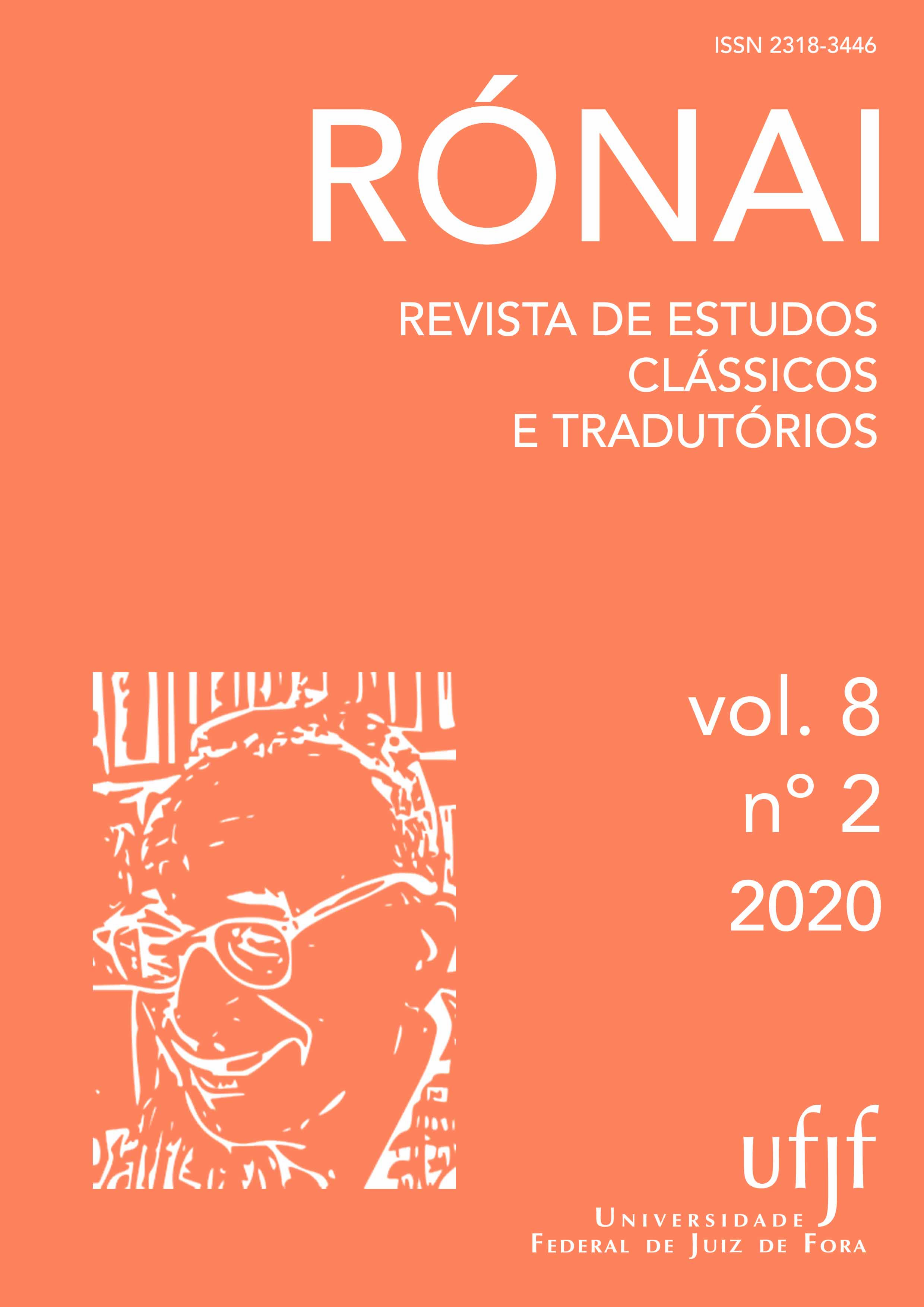“Nature”, “Substance” and Metaphor in Aristotle
DOI:
https://doi.org/10.34019/2318-3446.2020.v8.32433Keywords:
substance, nature, language, metaphorAbstract
This paper addresses a difficult passage from Aristotle’s Metaphysics (V. 4, 1015a11-13) in which he identifies a metaphorical use of the term “nature” (phusis) to refer to the entities which he calls “substances”
(ousiai). I claim that the passage at stake deploys the very notion of metaphor on the basis of an analogy (as defined in the Poetics and in the Rhetorics), which is grounded on a weak (and, sometimes, very weak) similarity between two relations (each involving two relata). The sentences found in 1015a11-13 belong to those kind of metalinguistic sentences which we usually employ to shed some light on the metaphorical use of a term. The similarity Aristotle is presupposing is this: both nature and substance are, in their respective fields, some kind of principle that guarantees (besides other things) certain persistance conditions for what they are the principles of. And this weak similarity is enough for the term “nature” to refer metaphorically to substances.
Downloads
References
DE AFRODISIA, A. In Aristotelis Metaphysica Commentaria, Michael Hayduck (ed.). Berlin: Georg Reimers, 1891.
ANGIONI, L. Metafísica de Aristóteles. Phaos 3, p. 5-21, 2003.
ANGIONI, L. As Noções Aristotélicas de Substância e Essência. Campinas: Editora da Unicamp, 2008.
ANGIONI, L. Aristóteles, Física I-II. Campinas: Editora da Unicamp, 2009.
BARNES, J. (ed.). The Complete Works of Aristotle. The Revised Oxford Translation. Princeton: Princeton University Press, 1980.
BEARE. I. I. Aristotle: On Memory. In: The Complete Works of Aristotle, Barnes, J. (ed.). The Revised Oxford Translation. Princeton: Princeton University Press, 1980.
BODEÜS, R., STEVENS, A. Aristote, Métaphysique Delta. Paris: Vrin, 2014.
BOYS-STONES, G. (ed.) Metaphor, Allegory and the Classical Tradition. Oxford: Oxford University Press, 2003.
CODE, A. Aristotle’s Metaphysics as a science of principles, Revue Internationale de Philosophie 51, 1997, p. 357-378.
KIRWAN. C. Aristotle: Metaphysics, Books Γ, Δ and Ε. Oxford: Clarendon Press (2. ed.), 1993.
INNES, D. Metaphor, Simile, and Allegory as Ornaments of Style. In: Boys-Stones, G. (ed.), Metaphor, Allegory and the Classical Tradition. Oxford: Oxford University Press, p. 7-27, 2003.
LAKS, A. ¿Qué es cognitivo en la metáfora según Aristóteles?. Archai 30, e03032, 2020.
LUCAS, D. W. Aristotle’s Poetics, Oxford: Clarendon Press, 1968.
MORAN, R. Artifice and Persuasion: The Work of Metaphor in the Rhetoric. In: Essays on Aristotle’s Rhetoric, Oksenberg-Rorty, A. (ed.). Berkeley/Los Angeles: University of California Press, 1996, p. 385-398.
OKSENBERG-RORTY, A. (ed.). Essays on Aristotle’s Rhetoric. Berkeley/Los Angeles: University of California Press, 1996.
ROSS, D. Metaphysics. In: The Complete Works of Aristotle. “The Revised Oxford Translation”, Barnes, J. (ed.). Princeton: Princeton University Press, 1980.
ROSS, D. Aristotle’s Metaphysics. Oxford: Clarendon Press, 1924.
SORABJI. R. Aristotle on Memory., 2nd edition. Chicago: Chicago University Press, 2004.
Downloads
Published
How to Cite
Issue
Section
License
Copyright (c) 2020 Lucas Angioni

This work is licensed under a Creative Commons Attribution 4.0 International License.
Copyright
The authors of the published contributions agree with the following items:
1. The authors keep the copyright and convey to the journal the right of first publication, the work being licensed under a Creative Commons Attribution License 4.0 International.
2. The authors are allowed and stimulated to publicize and distribute their work online after the publication in the journal, recognizing first publication in this journal.
3. The authors of the approved works authorize the journal to distribute their content, after publication, for reproduction in content indexes, virtual libraries and similars.
For more information about Creative Commons Attribution License 4.0 International, please, go to: https://creativecommons.org/licenses/by/4.0/deed.en
Editorial exemption
The authors of the published contributions are entirely and exclusively responsible for their contents. Its content does not represent an official position of Rónai - Revista de Estudos Clássicos e Tradutórios neither of Faculdade de Letras da Universidade Federal de Juiz de Fora or their partner institutions.



